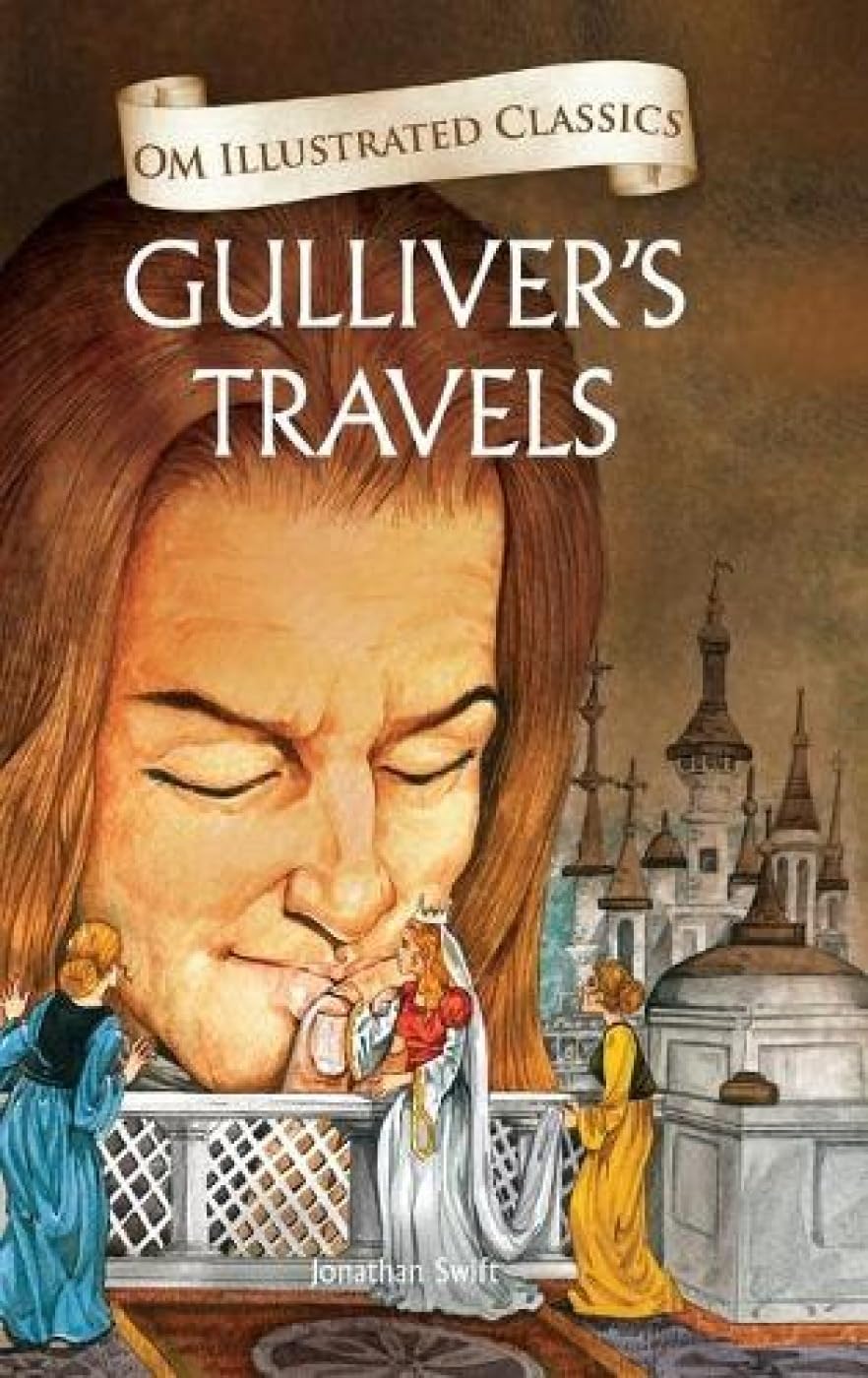
Original Title
Galivhar's Travels
Subject & College
Publish Date
1756-01-01
Published Year
1756
Publisher, Place
Readers Feedback
Galivhar’s Travels
"BOOK REVIEW TITLE of book : Galivhar's Travels AUTHOR: JONATHAN SWIFT NARRATOR : MA. KRU. BEHERE PUBLISHER : UMA PUBLICATIONS BOOK EXAMINER : JADHAV BHAVESH...Read More
Jadhav Bhavesh Deepak
Galivhar’s Travels
“BOOK REVIEW
TITLE of book : Galivhar’s Travels
AUTHOR: JONATHAN SWIFT
NARRATOR : MA. KRU. BEHERE
PUBLISHER : UMA PUBLICATIONS
BOOK EXAMINER : JADHAV BHAVESH DEEPAK
BACHELOR OF COMMERCE (THIRD YEAR)
Commerce
M.S.G COLLEGE OF ARTS, SCIENCE & COMMERCE, MALEGAON
Jonathan Swift’s *Gulliver’s Travels*, first published in 1726, is a satirical novel that explores themes of human nature, politics, and society through the fantastical voyages of Lemuel Gulliver. The book is often regarded as one of the greatest works of English literature due to its sharp critique of contemporary society, its witty narrative, and its imaginative world-building. This review will examine the key elements of Swift’s work, including its plot, themes, and literary significance.
The story follows Gulliver, an experienced surgeon and sea captain, as he embarks on four distinct voyages to strange and fantastical lands. Each journey exposes him to different societies that, while outwardly bizarre, mirror the shortcomings of human civilization. The first voyage takes him to Lilliput, a land inhabited by tiny people. Here, Swift satirizes the pettiness and triviality of political disputes, as Gulliver is caught in the midst of a conflict between two factions that focus on the ridiculous differences between their beliefs. The second voyage leads Gulliver to Brobdingnag, a country of giants, where he is reduced to a pitiful, insignificant figure in the eyes of the inhabitants. This voyage critiques human pride and arrogance, particularly through the King of Brobdingnag, who views European civilization as morally corrupt and degenerate.
In his third voyage, Gulliver encounters the flying island of Laputa, home to highly intellectual but impractical people who are obsessed with abstract theories while neglecting the practical aspects of life. Swift here mocks the scientific community and the disconnect between knowledge and real-world application. Finally, in his fourth voyage, Gulliver arrives at the land of the Houyhnhnms, where rational, horse-like creatures live in a society devoid of deceit and moral corruption. In contrast, the Yahoos, human-like creatures, represent the basest aspects of humanity, and Gulliver becomes disillusioned with his own species. This final section serves as a bleak commentary on the nature of humanity, questioning whether humans are truly capable of reason and virtue.
One of the most striking aspects of *Gulliver’s Travels* is Swift’s use of satire. The novel is not just a fantastical adventure but a pointed critique of 18th-century English society, particularly its politics, science, and colonialism. Swift’s clever use of allegory, where each land and society that Gulliver visits reflects an aspect of the real world, makes the novel both entertaining and thought-provoking. Through the absurdities of these fictional societies, Swift exposes the moral and intellectual failings of his time.
Swift also critiques human nature on a deeper level, suggesting that people are inherently flawed and that society exacerbates these flaws. The contrast between the rational Houyhnhnms and the brutish Yahoos forces readers to confront uncomfortable truths about humanity’s capacity for cruelty, selfishness, and folly.
At its core, *Gulliver’s Travels* is a philosophical exploration of the tensions between idealism and reality, reason and emotion, and the individual versus society. Swift’s biting wit and mastery of language allow him to effectively blend humor with profound criticism, making the novel a timeless work of literature. The story’s structure, with each voyage serving as a separate critique of different aspects of human existence, keeps the narrative fresh and engaging throughout.
In conclusion, *Gulliver’s Travels* is more than just a satirical adventure; it is a profound examination of the human condition. Through Gulliver’s encounters with various strange lands, Swift encourages readers to reflect on their own society and the values they hold dear. Its clever use of satire and allegory, along with its deep philosophical undercurrents, solidify its place as one of the most important works in the Western literary canon.”
